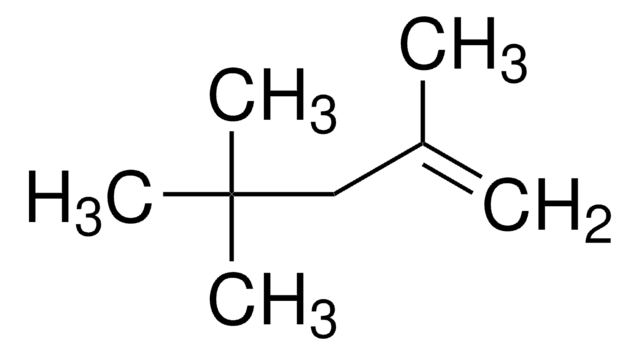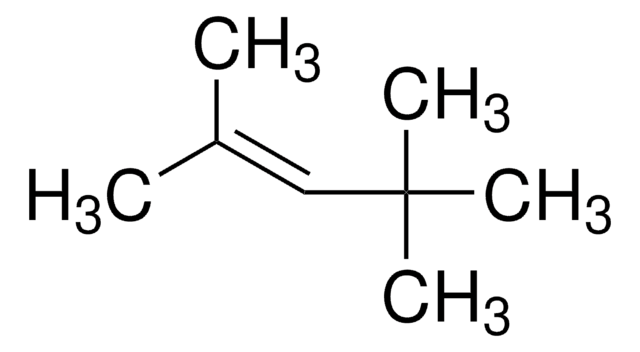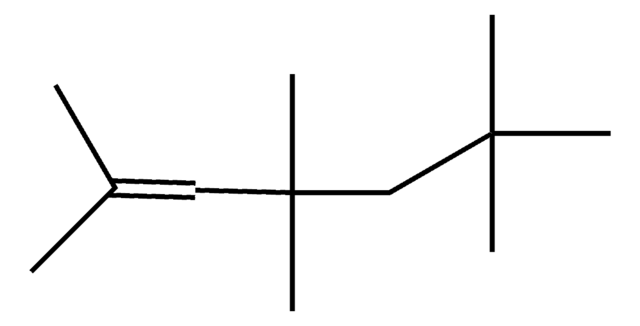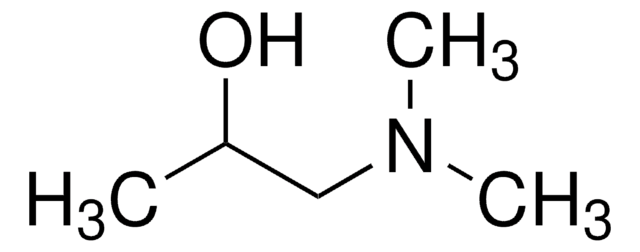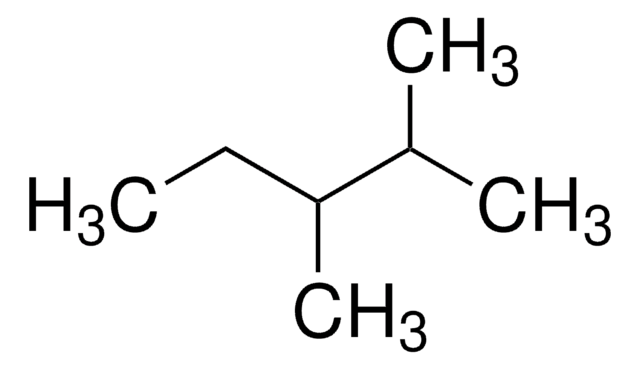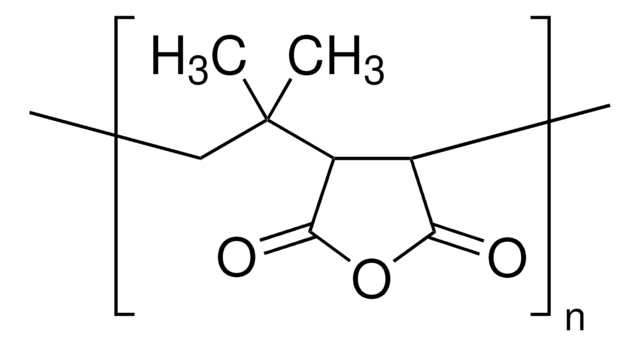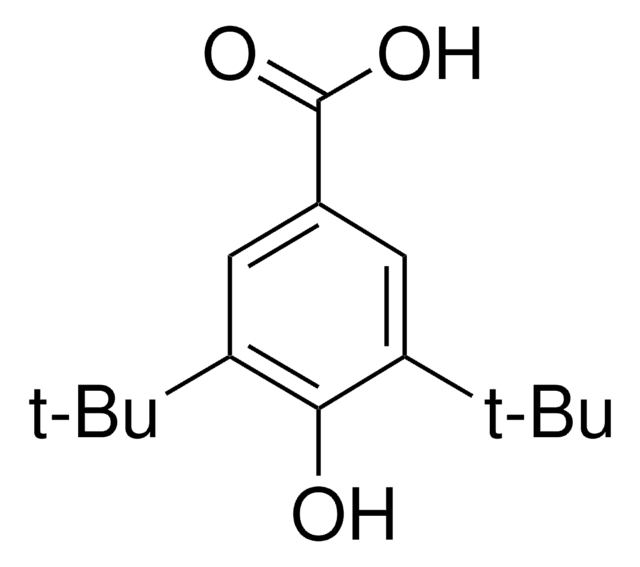38180
Diisobutylene
technical, ≥90% (3 parts 2,4,4-trimethyl-1-pentene + 1 part 2,4,4-trimethyl-2-pentene, GC)
Synonym(s):
2,4,4-Trimethyl-1-pentene + 2,4,4-Trimethyl-2-pentene
About This Item
Recommended Products
grade
technical
Quality Level
Assay
≥90% (3 parts 2,4,4-trimethyl-1-pentene + 1 part 2,4,4-trimethyl-2-pentene, GC)
refractive index
n20/D 1.411
bp
101-103 °C (lit.)
density
0.716 g/mL at 20 °C (lit.)
SMILES string
CC(=C)CC(C)(C)C
InChI
1S/C8H16/c1-7(2)6-8(3,4)5/h1,6H2,2-5H3
InChI key
FXNDIJDIPNCZQJ-UHFFFAOYSA-N
Looking for similar products? Visit Product Comparison Guide
Related Categories
General description
Application
- To compose alternalte diesel fuel.
- As fuel in single-cylinder engine; exhaust generated from combustion due to the burning of fuel has been reported to contain high concentrations of olefins.1
- Preparation of mono- and dialkylated diphenylamines.
Signal Word
Danger
Hazard Statements
Precautionary Statements
Hazard Classifications
Aquatic Acute 1 - Aquatic Chronic 1 - Asp. Tox. 1 - Flam. Liq. 2 - STOT SE 3
Target Organs
Central nervous system
Storage Class Code
3 - Flammable liquids
WGK
WGK 3
Flash Point(F)
21.2 °F - closed cup
Flash Point(C)
-6 °C - closed cup
Personal Protective Equipment
Choose from one of the most recent versions:
Already Own This Product?
Find documentation for the products that you have recently purchased in the Document Library.
Customers Also Viewed
Our team of scientists has experience in all areas of research including Life Science, Material Science, Chemical Synthesis, Chromatography, Analytical and many others.
Contact Technical Service